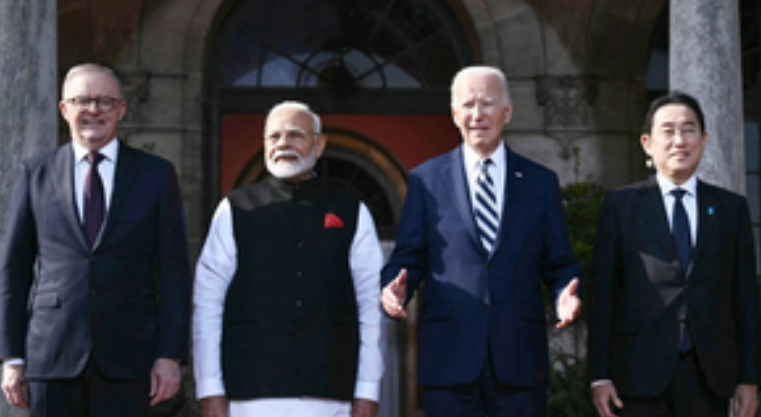Health
‘Cancer Moonshot’ initiative begins with reducing cervical cancer burden in Indo-Pacific

New Delhi, Sep 22
The 'Cancer Moonshot’ initiative, launched by the Quad countries to help end cancer to save hundreds of thousands of lives, will serve to strengthen the overall cancer care ecosystem in the Indo-Pacific by improving health infrastructure, expanding research collaborations, building data systems, and providing greater support for cancer prevention, detection, treatment and care.
The initative starts with cervical cancer. While preventable through vaccination and usually treatable if detected early, it remains the third leading cause of cancer deaths among women in the Indo-Pacific region.
Fewer than one in 10 women in the Indo-Pacific have completed their human papillomavirus (HPV) vaccination series, and fewer than 10 per cent have undergone recent screening. Through this initiative, Quad countries will work to address these gaps by promoting HPV vaccination, increasing access to screenings, and expanding treatment options and care in underserved areas.
Quad countries intend to continue their strong commitments to Gavi (the Vaccine Alliance), including with HPV vaccines in the Indo-Pacific, with the United States making an early pledge of at least $1.58 billion over five years.
In addition, Quad countries will work together with United Nations agencies on bulk purchasing of HPV diagnostics to bring down the cost of cervical cancer screening, and work with the International Atomic Energy Agency to improve access to and quality of medical imaging and radiation therapy, according to the government.
India, on its part, will share technical expertise in digital health through its National Non-Communicable Disease (NCD) portal.
As part of its $10 million commitment to support the World Health Organization (WHO) led Global Initiative on Digital Health, India will provide technical assistance to the Indo-Pacific region.
This includes offering technical support for the use of its National Non-Communicable Disease portal, which tracks long-term data on cancer screening and care, said the government.
“India commits to providing HPV sampling kits, detection tools and cervical cancer vaccines worth $7.5 million to the Indo-Pacific region,” the government announced.
India is scaling up population-based screening for oral, breast, and cervical cancers through its National Progamme for Prevention and Control of Non-Communicable Diseases.
The country is expanding access to specialised cancer treatment centres under its "Strengthening of Tertiary Care Cancer Centres” programme. The
“India is committed to affordable cancer treatment through Pradhan Mantri Jan Arogya Yojana (PMJAY). As part of its broader health coverage efforts, PMJAY, India is committed to providing affordable cancer treatments to its citizens, ensuring financial protection for those most in need,” said the government.
India’s commitment to cervical cancer elimination is further supported by implementation research led by the Indian Council of Medical Research (ICMR).
The Serum Institute of India, in partnership with Gavi, will support the procurement of up to 40 million doses of the HPV vaccine for distribution across the Indo-Pacific region.
The Bill and Melinda Gates Foundation has announced it intends to commit up to $180 million over four years to help accelerate the global uptake of HPV vaccines, develop new prophylactic HPV and therapeutic vaccines and diagnostic tools and fund clinical studies.
The Global Initiative Against HPV and Cervical Cancer will promote HPV vaccination, cervical screening and early treatment projects with partners and collaborators in the Indo-Pacific Region, said the government.



































